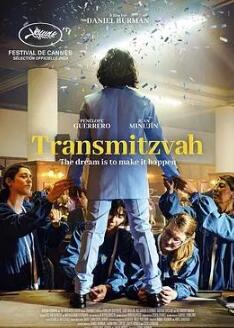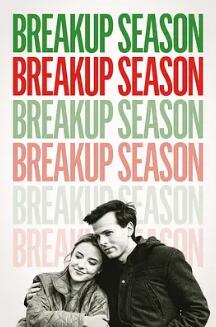Nel
搜索"Nel",找到859部影视作品
导演:
/丹尼尔·布尔曼
剧情:
TRANSMITZVAH is a love story between siblings. They exhibit their wounds, exchange the pieces of each other’s puzzle, and complete (or start) the process of reaffirming their own identity. Rubén –the Singmans’ youngest son– challenges tradition by deciding to have a Bat Mitzvah instead of a Bar Mitzvah. Twenty years later, Rubén –now MUMY SINGER– returns to their hometown as a famous Yiddish singing star. After a sad event in the family, MUMY loses her voice and, with the help of her brother EDUARDO, tries to complete the path to adult life. A comedy with a jolly, playful, and musical dialogue about MUMY SINGER, and her trip to the past to make herself up, avoiding shortcuts and labels. The journey to who we really are can’t be avoided and must necessarily be taken.
导演:
/马可·费雷里
剧情:
本片是费拉里对现代社会文明和小家庭中男子的作用的最新探讨的成果。工程师热拉尔德被妻子抛弃了,并把小儿子皮耶罗特留给了他。当工厂宣布休假时,他把保姆当作情人;在短短的时间内,他重新经受了令人伤脑筋的以两性斗争为特点的两人关系发展的全过程。热拉尔德完全被以性交为表现的男性意识所支配。当他同情人的关系发生危机时,他的情人却和他的前妻成了好朋友。他出于抗议和绝望用一把厨房用的电锯把自己的生殖器割掉了。这个可以作为模式的事件的大部分 (就象在戏剧舞台上一样)发生在一套高层小公寓里。费拉里批判了他的主人公的大男子主义,同时也表现了由于生活(工作,住宅,千篇一律的生活秩序,孤独寂寞)造成的绝望和灰心丧气。如果说影片留下了一种相互矛盾的印象,那是由于影片以独特的方式提出了问题:这个男人是他的行为的牺牲品,也是妇女全面反抗的牺牲品;费拉里在这部影片中同样使用了多种手法,而且通过一些“煽动性"的细节和效果来吸引更多的观众。
导演:
/丹尼尔·布尔曼
剧情:
TRANSMITZVAH is a love story between siblings. They exhibit their wounds, exchange the pieces of each other’s puzzle, and complete (or start) the process of reaffirming their own identity. Rubén –the Singmans’ youngest son– challenges tradition by deciding to have a Bat Mitzvah instead of a Bar Mitzvah. Twenty years later, Rubén –now MUMY SINGER– returns to their hometown as a ...
导演:
/马克·罗特蒙德
主演:
剧情:
杰森十岁,患有自闭症。他保持固定的生活规律,不容许违反。他的父母米尔科和法蒂梅都为此付出努力,但学校却想把杰森转到特殊教育学校。为了避免这种情况,米尔科答应帮儿子找一个喜欢的足球俱乐部。作为回报,杰森答应在学校好好表现……
导演:
/Omar Hilal
主演:
剧情:
Tells the story of Hassan - a security guard living an impoverished life with his mother who dreams of traveling and living abroad. One day he stumbles on the sport of blind soccer and cunningly decides to pose as a visually impaired man to join a team right before the World Cup tournament in Europe.
导演:
/纳卡什·哈立德
剧情:
20-something Aden has no other ambition in life than to become an actor. Most of his time is spent making videos as he applies for roles he’ll never get. After a string of dreadful auditions, where bizarre and humiliating requests are made of him, he comes up with a radical move: he will take full responsibility for finding a role that primarily he, himself, wants to play. This self-assured debut, playful in form and narrative with a fairy-tale edge to it, examines both the commercial work ethic and the concept of identity, which it presents as multilayered and also questionable. At the same time, in its exploration of the given themes, the film doesn’t deny itself a socio-critical tone, nor does it resist the temptation to tease the viewer a little.
导演:
/Guillermo Carbonell,Ben Deka,Julien Deka,Hervé Freiburger,Laura Kulik,Filipe Melo,Juan Montes de Oca
主演:
剧情:
A boy is haunted by terrifying nightmares where a monster lurks inside the closet. To his relief, his father appears in the middle of the night helping him to face his fears. But the boy will begin to question the true nature of these apparitions, having to face the truth about his father's destiny and the evil force that threatens to consume him.
导演:
/Alexander Kluge
主演:
剧情:
The Power of Emotion explains that emotion isn't to be confused with sentimentality. Emotion is ancient and more powerful than any art form. The film looks at young couples who run into difficulties as they try to translate their experiences of love into clear decision-making. A woman who has shot her husband provides a judge with a puzzle. Those who love can bring the dead back to life by means of co-operation. That's the focus of the opera, "The Power Plant of Emotions" and the "Opera of the 20th Century" cinema. Alexander Kluge: The Power of Feeling When I started working on The Power of Feeling, I was not in a rational state. I did not say, I have a subject and now I will make a film about it. Instead I was spellbound and observed in my direct surroundings, for example, how feelings move. I have not really dealt with the theme of my mother's death and the fact that she was the one who taught me "how feelings move." Nor have I dealt with how she died. That was an entire palette of feelings: "All feelings believe in a happy end," and everyone believes tacitly that they will live forever: The entire palette is somehow optimistic, a positive attitude towards life having been put on the agendaas long as she was young, as long as her body held out, from one day to the next she collapsed. She just suddenly collapsed, like in an opera where disaster takes the stage in the fifth act. It felt as if I had observed an air raid or a disaster. The film The Power of Feeling is not about feelings, but rather their organization: how they can be organized by chance, through outside factors, murder, destiny; how they are organized, how they encounter the fortune they are seeking.What is all this organization of feelings about? Generally feelings tend to be a dictatorship. It is a dictatorship of the moment. The strong feeling I am having right now suppresses the others. For thoughts this would not be the case. One thought attracts others like a magnet. People therefore need affirmation by other people to be sure about their own feelings (to counteract the acquisition of their feelings through outside forces). Through the interaction of many people, for example, in public, the various feelings also have a magnetic attraction to one another just like thoughts do. Feelings communicate through their manifestation in public. The cinema is the public seat of feelings in the 20th century. The organization is set up thusly: Even sad feelings have a happy outcome in the cinema. It is about finding comfort: In the 19th century the opera house was the home to feelings. An overwhelming majority of operas had a tragic end. You observed a victim. I am convinced that there is a more adventuresome combination: Feelings in both the opera and traditional cinema are powerless in the face of destiny's might. In the 20th century feelings barricaded themselves behind this comfort, in the 19th century they entrenched themselves in the validity of the lethal seriousness.






























